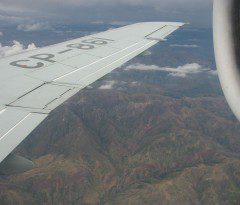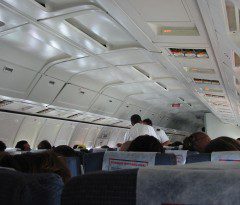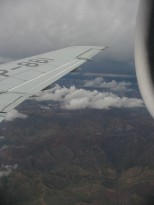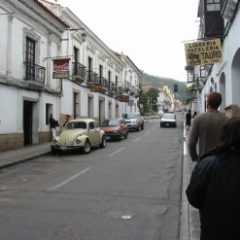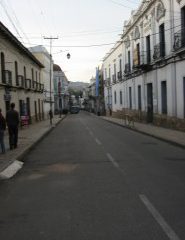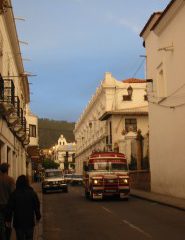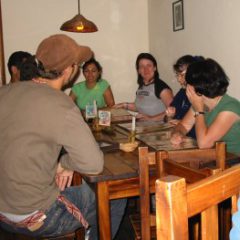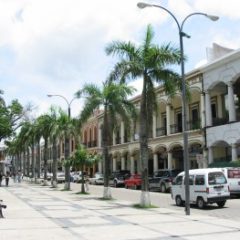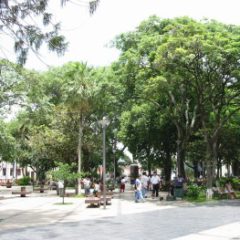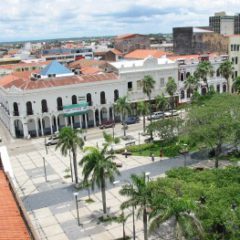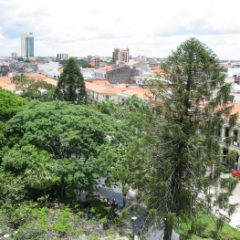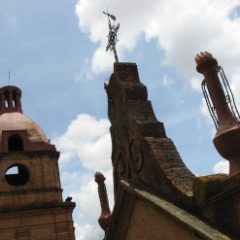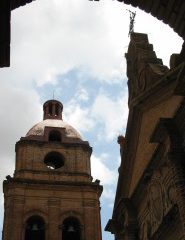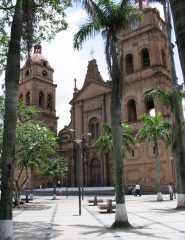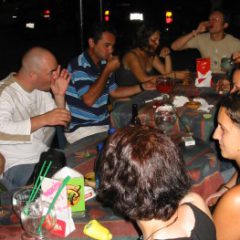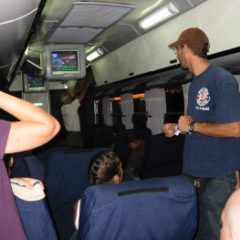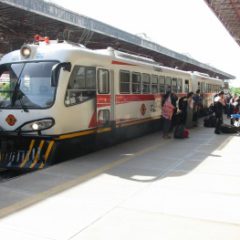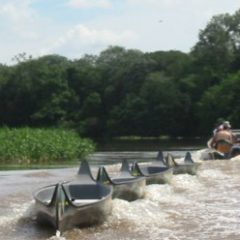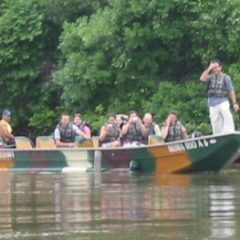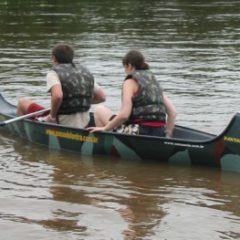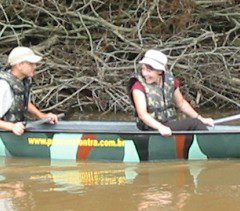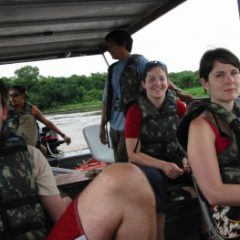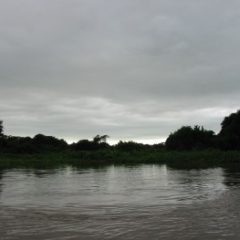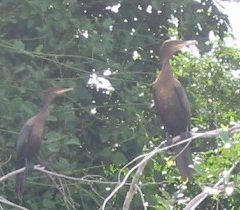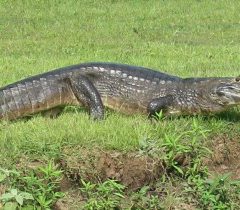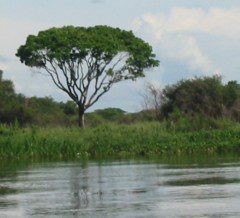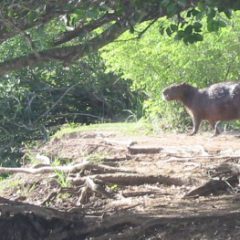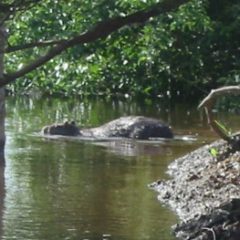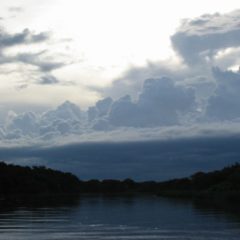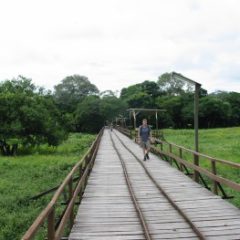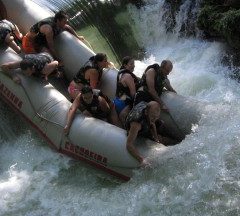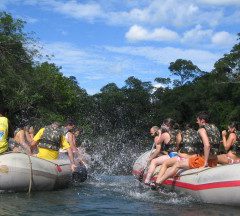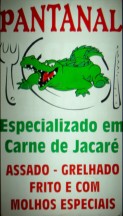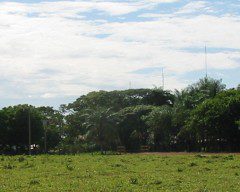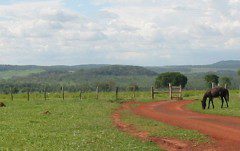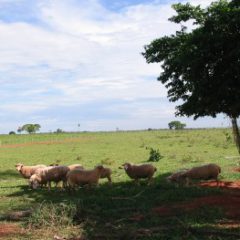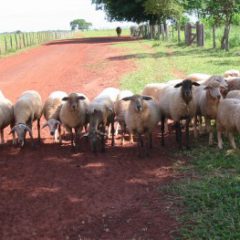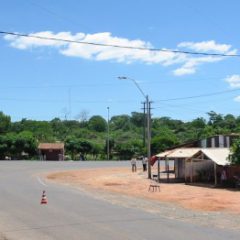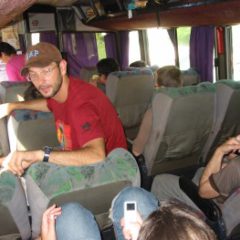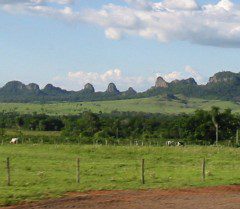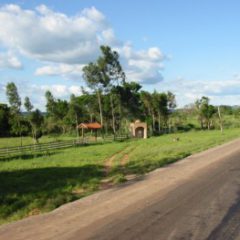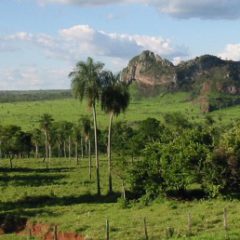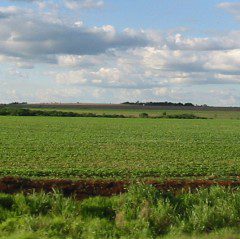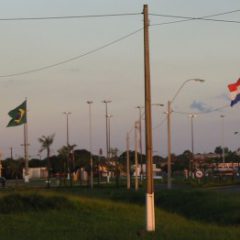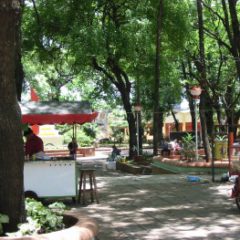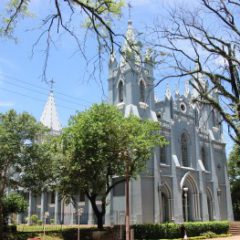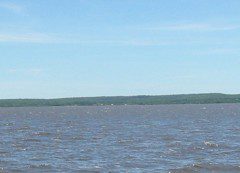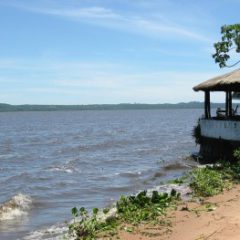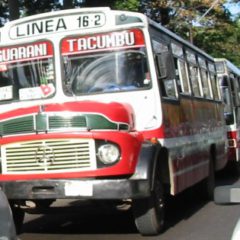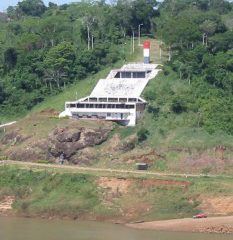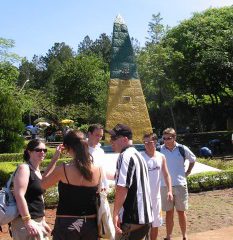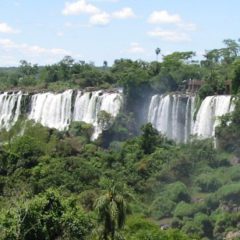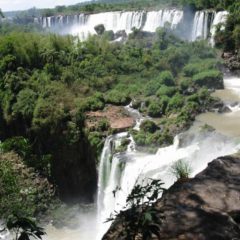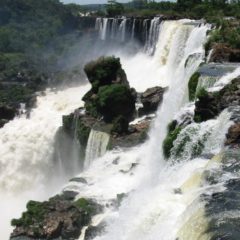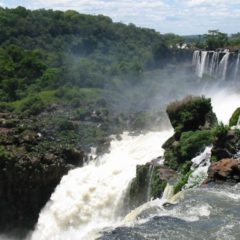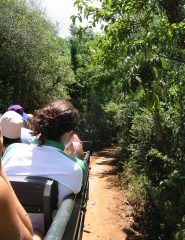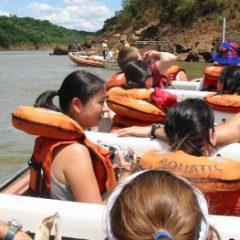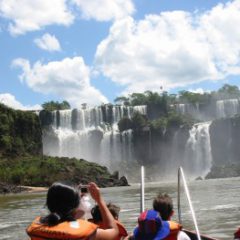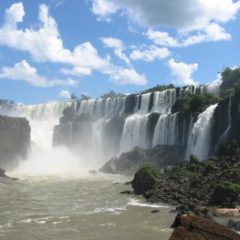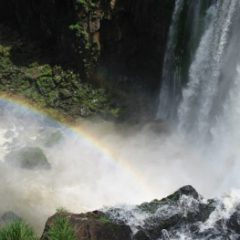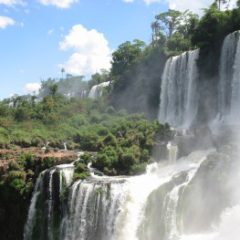We arrived late at night (01:30) in Bonito after a long bus ride. Consequently the briefing about our options in Bonito did not start before 11:00 in the morning of the 27th. Various options were on offer, starting with the visit of the cave of the blue lagoon, to rafting (no real rafting, more like going down a river with 3 waterfalls) to snorkeling in the Prata river.
I went for the rafting and snorkeling option. I left my camera in the hotel, as both options involve loads of water… so there are only a few pictures here 🙁
Rafting was scheduled in the afternoon of our first day in Bonito, so I spent the time after the briefing by discovering the town (together with several others who did not mind going to the cave of the blue lagoon). At about 14:00 we (group of 7 or 8) got picked up at the hotel and transferred to the starting point of the boat tour. We started off together with another boat of Brazilian tourists and quickly started a water fight against them (which we – I would say – lost…).
On the way downstream we passed three water falls with up to 2 to 3 meters; we also had the opportunity for a swim in the clear water (although I would not call it swim, it was more a getting wet, as we were not allowed to take of the life jackets). After our return the question was raised what food to go for – finally we ended up with Jacare (alligator) – which was too salty for my taste…
Most of the group spent the second day in Bonito doing the snorkeling in Rio de Prata option. After a transfer to the starting point we got the needed equipment (wet suit and snorkeling gear) and got transferred to the edge of the jungle with a truck. From here we had to walk (about 2-3 km) before we arrived at the place to enter the water. The water was crystal clear, view of up to 15-20 meters, plenty of fish and other things to watch around. We followed the stream of the river to the place where it merged with Rio Formoso (about 1.5 hours, 3 km) – it felt like swimming in an aquarium.
At the merge point we had the option of swimming on for another kilometer or to take a boat to the end point – of course I opted for the swimming option. At the end point the normal procedure would have been to go onto the truck again and get back to farm for lunch and some rest. However the truck did not come (for whatever reason).
